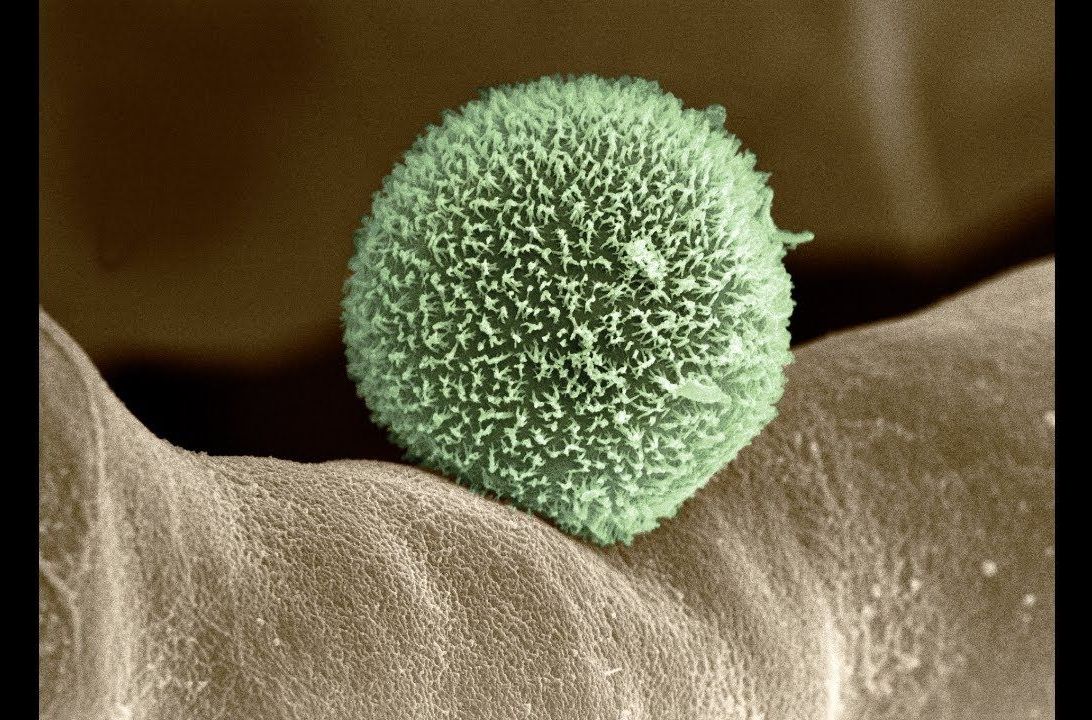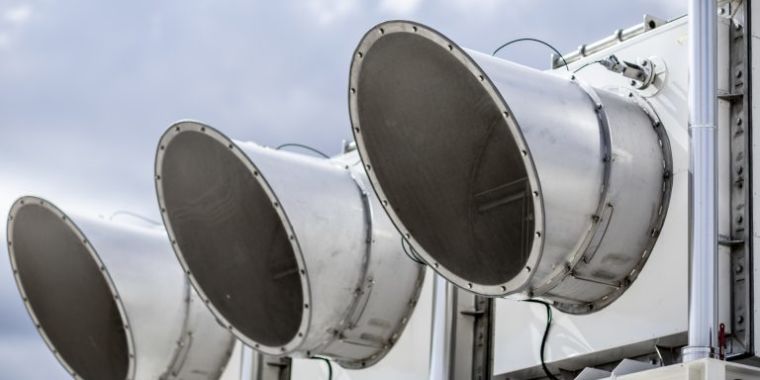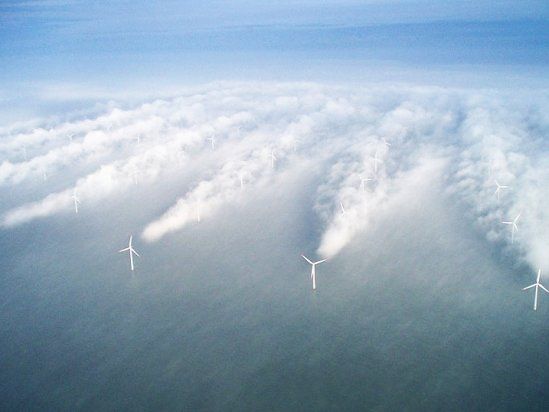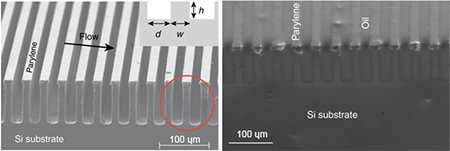Archive for the ‘sustainability’ category: Page 532
Oct 7, 2018
Connecticut receives $30 million for water-related projects
Posted by Genevieve Klien in category: sustainability
Connecticut receives $30 million in federal funding to improve water infrastructure, including drinking water and municipal sewage projects.
Oct 6, 2018
Can supplementation with NMN Increase Longevity?
Posted by Alexandros El in categories: biotech/medical, life extension, sustainability

Recently, we have shown that by administering the NAD+ precursor NMN (Nicotinamide Mononucleotide)in normal drinking water to older mice, NAD+ levels were restored to those normally associated with younger healthy animals. By administering NMN to mice for just one week, our lab demonstrated a robust correction in age-associated metabolic dysfunction and restored muscle mitochondrial function in old mice to levels seen in younger control mice (Gomes et al. 2013).
https://www.lifespan.io/campaigns/can-nmn-increase-longevity…019dfcda6c
Continue reading “Can supplementation with NMN Increase Longevity?” »
Oct 5, 2018
Company that sucks CO2 from air announces a new methane-producing plant
Posted by Bill Kemp in category: sustainability
Oct 4, 2018
A rock used as a doorstop for the past 30 years turns out to be a meteorite valued at $100K
Posted by Michael Lance in categories: food, sustainability
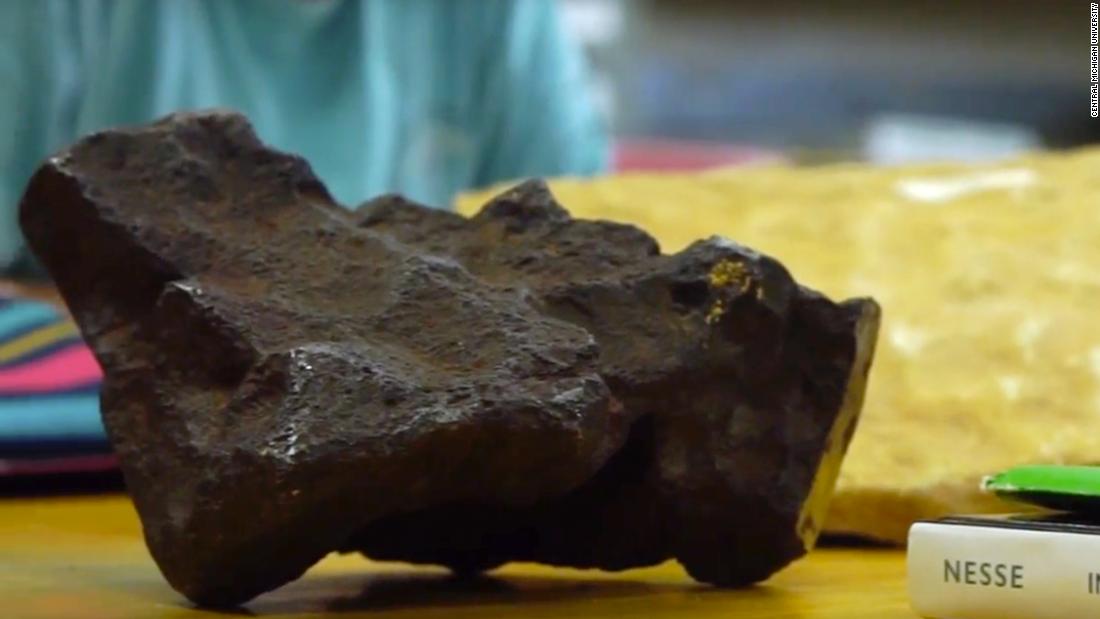
“It’s the most valuable specimen I have ever held in my life, monetarily and scientifically,” Sibescu said.
For double verification, a slice of it was sent to the Smithsonian Institution in Washington, DC, which validated it was in fact a meteorite, according to the press release.
Oct 4, 2018
Mechanical engineers develop ways to improve windfarm productivity
Posted by Bill Kemp in categories: energy, sustainability
You’ve probably seen them, perhaps on long roadtrips: wind turbines with enormous, hypnotic rolling blades, harnessing the clean power of wind for conversion into electric energy. What you may not know is that for the explosion in the number of wind turbines in use as we embrace cleaner sources of energy, these wind farms are quite possibly not as productive as they could be.
“We’ve been designing turbines for use by themselves, but we almost never use them by themselves anymore,” said UC Santa Barbara mechanical engineering professor Paolo Luzzatto-Fegiz, whose specialty lies in fluid mechanics. Historically, he said, wind turbines were used individually or in small groups, but as the world moves toward greener energy technologies, they are now found in groups of hundreds or thousands.
The problem with these large installations is that each machine, which has been designed to extract as much energy as possible from oncoming wind, may not “play well” with the others, Luzzatto-Fegiz explained. Depending on how the turbines are situated relative to each other and to the prevailing wind, those not directly in the path of the wind could be left to extract energy from significantly depleted airflow.
Continue reading “Mechanical engineers develop ways to improve windfarm productivity” »
Oct 4, 2018
Flowing salt water over this super-hydrophobic surface can generate electricity
Posted by Bill Kemp in categories: energy, engineering, sustainability
Engineers at the University of California San Diego have developed a super-hydrophobic surface that can be used to generate electrical voltage. When salt water flows over this specially patterned surface, it can produce at least 50 millivolts. The proof-of-concept work could lead to the development of new power sources for lab-on-a-chip platforms and other microfluidics devices. It could someday be extended to energy harvesting methods in water desalination plants, researchers said.
A team of researchers led by Prab Bandaru, a professor of mechanical and aerospace engineering at the UC San Diego Jacobs School of Engineering, and first author Bei Fan, a graduate student in Bandaru’s research group, published their work in the Oct. 3 issue of Nature Communications.
The main idea behind this work is to create electrical voltage by moving ions over a charged surface. And the faster you can move these ions, the more voltage you can generate, explained Bandaru.
Continue reading “Flowing salt water over this super-hydrophobic surface can generate electricity” »
Oct 4, 2018
Artificial enzymes convert solar energy into hydrogen gas
Posted by Bill Kemp in categories: bioengineering, biological, chemistry, genetics, solar power, sustainability
In a new scientific article, researchers at Uppsala University describe how, using a completely new method, they have synthesised an artificial enzyme that functions in the metabolism of living cells. These enzymes can utilize the cell’s own energy, and thereby enable hydrogen gas to be produced from solar energy.
Hydrogen gas has long been noted as a promising energy carrier, but its production is still dependent on fossil raw materials. Renewable hydrogen gas can be extracted from water, but as yet the systems for doing so have limitations.
In the new article, published in the journal Energy and Environmental Science, an interdisciplinary European research group led by Uppsala University scientists describe how artificial enzymes convert solar energy into hydrogen gas. This entirely new method has been developed at the University in the past few years. The technique is based on photosynthetic microorganisms with genetically inserted enzymes that are combined with synthetic compounds produced in the laboratory. Synthetic biology has been combined with synthetic chemistry to design and create custom artificial enzymes inside living organisms.
Continue reading “Artificial enzymes convert solar energy into hydrogen gas” »
Oct 3, 2018
Angus the robot could soon be cultivating your salads in a robo-farm
Posted by Carse Peel in categories: food, robotics/AI, sustainability
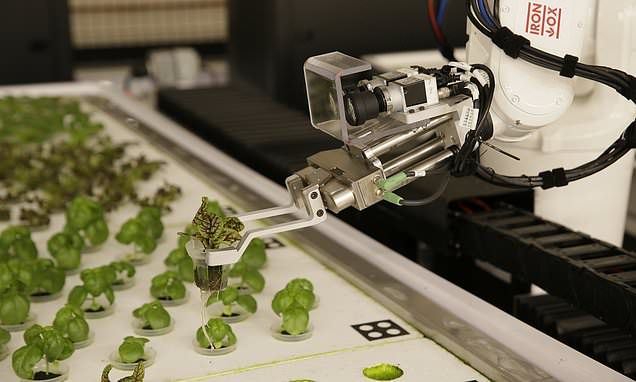
Angus, a 1,000lb robot, rolls about the indoor farm on omnidirectional wheels.
Its main job is to shuttle maturing produce to another, as-yet unnamed robot, which transfers plants from smaller growing pods to larger ones.
Continue reading “Angus the robot could soon be cultivating your salads in a robo-farm” »
Oct 2, 2018
Scientists may have uncovered an entire new whale species
Posted by Genevieve Klien in categories: law, sustainability
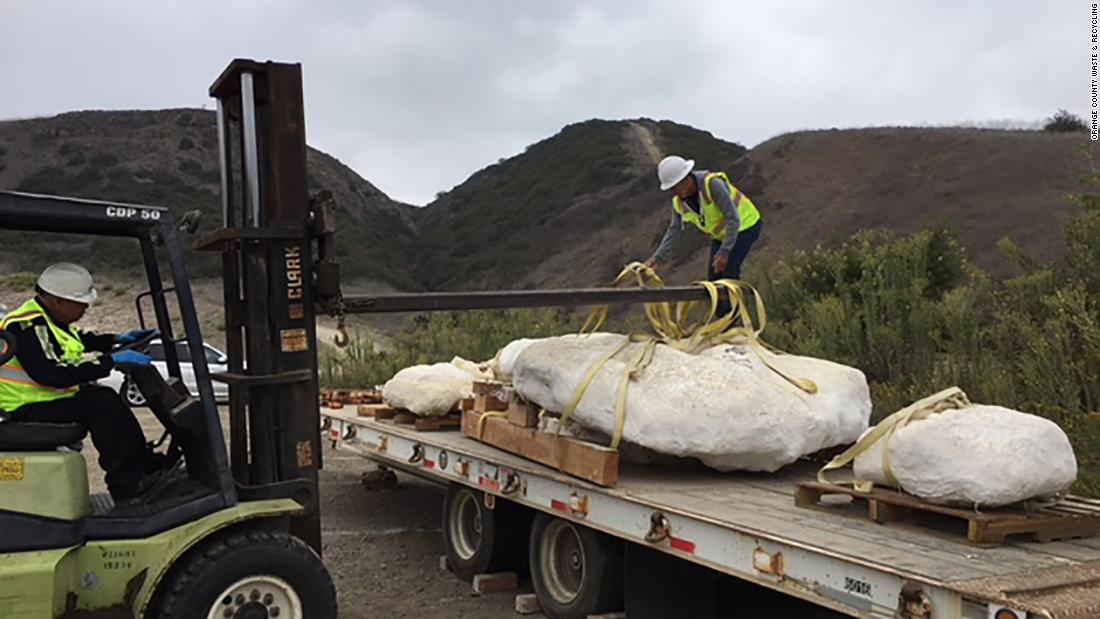
(CNN) — Scientists believe a fossil found at a landfill in California belongs to an extinct species of whale that lived between 4 and 7 million years ago.
The seven-ton fossil was unearthed in June during a construction excavation at the Prima Deshecha landfill in San Juan Capistrano, Orange County Waste & Recycling announced in a statement.
Continue reading “Scientists may have uncovered an entire new whale species” »
